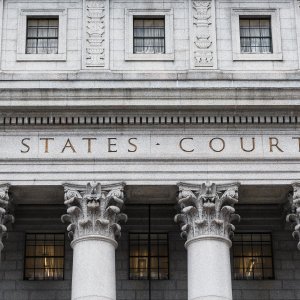Communities Across the Country Celebrate National Drug Court Month

The National Association of Drug Court Professionals (NADCP) has been coordinating National Drug Court Month for more than 10 years. During May of each year, Drug Courts, Veterans Treatment Course, and DWI Courts celebrate their success and their contributions to society. National Drug Court Month highlights the overall impact of these programs, and raises awareness of their importance to communities. National Drug Month gives drug court professionals and those who have benefited from its programs the opportunity to share their success with Members of Congress, and gain their continued support.
National Drug Court Month: An Overview
Drug Courts Save is the 2015 theme for National Drug Court Month, and sets aside the month of May to focus on its beneficial contributions to individuals and society. The Drug Courts Savetheme encompasses saving lives, saving veterans, saving families, saving America’s roadways from drunk drivers, and saving resources.
National Drug Court Month this year also focuses on uniting the Drug Court Community, policymakers, and the public.
A field kit is available on the NADCP website to help in planning National Drug Court Month events in communities across the nation, and offers their assistance in helping make community events a success.
Do Drug Courts Work?
The first Drug Court was founded 20 years ago, and since that time, more research on Drug Court effects have been published than nearly all criminal justice programs put together. Scrutinized by the scientific community, Drug Courts have demonstrated that they work.
Research results show Drug Courts work better than prison or jail; better than probation; and better than treatment alone. Drug Courts have demonstrated they markedly reduce drug use. They significantly reduce crime. And Drug Courts have demonstrated they are more cost-effective; withstanding cost comparison to other proven criminal justice strategies.
Drug Courts work in reducing crime:
- Seventy-five percent of Drug Court graduates nationwide remain arrest-free “at least two years” once they leave the program.
- Individual Drug Court long-term study outcomes showed reductions in crime for at least 3 years, and lasting for more than 14 years.
- Rigorous analyses of Drug Courts reveal that they markedly reduce crime, up to 45 percent more reduction than other available sentencing options.
Drug Courts work in saving money:
- Every dollar invested in Drug Courts across the nation saves taxpayers up to $3.36 in criminal justice costs.
- Studies have shown that Drug Courts can offset utilization of healthcare and victimization services up to $27 for every dollar invested.
- Drug Courts’ cost saving per client range from $3,000 to $13,000; reflecting cost savings resulting from reduced prison costs, reduced victimization, and reduced “revolving-door” arrests and trials.
Furthermore, a report submitted to Congress in 2012 by the U.S. Government Accountability Office confirmed that Drug Courts reduce substance abuse, reduce crime, and save money. On a national basis, Drug Courts give a $27 return to the community for every investment of $1; and reduce crime by up to 50%.
Interestingly enough, studies further reveal that the more serious the person’s drug addiction, and the longer their criminal record—the better the Drug Courts work. Reducing jail-time, and reducing family conflicts connected to domestic violence and child abuse are proven Drug Court results.
May 19, 2015 Celebrating National Drug Court Month
More than 2,900 Drug Courts across the nation celebrate National Drug Court this May. The thousands of addicts entering the criminal justice system, and face with jail or prison time, will complete Drug Court. It is their opportunity to once again become a productive participant in society, thus making it a better world for us all.


